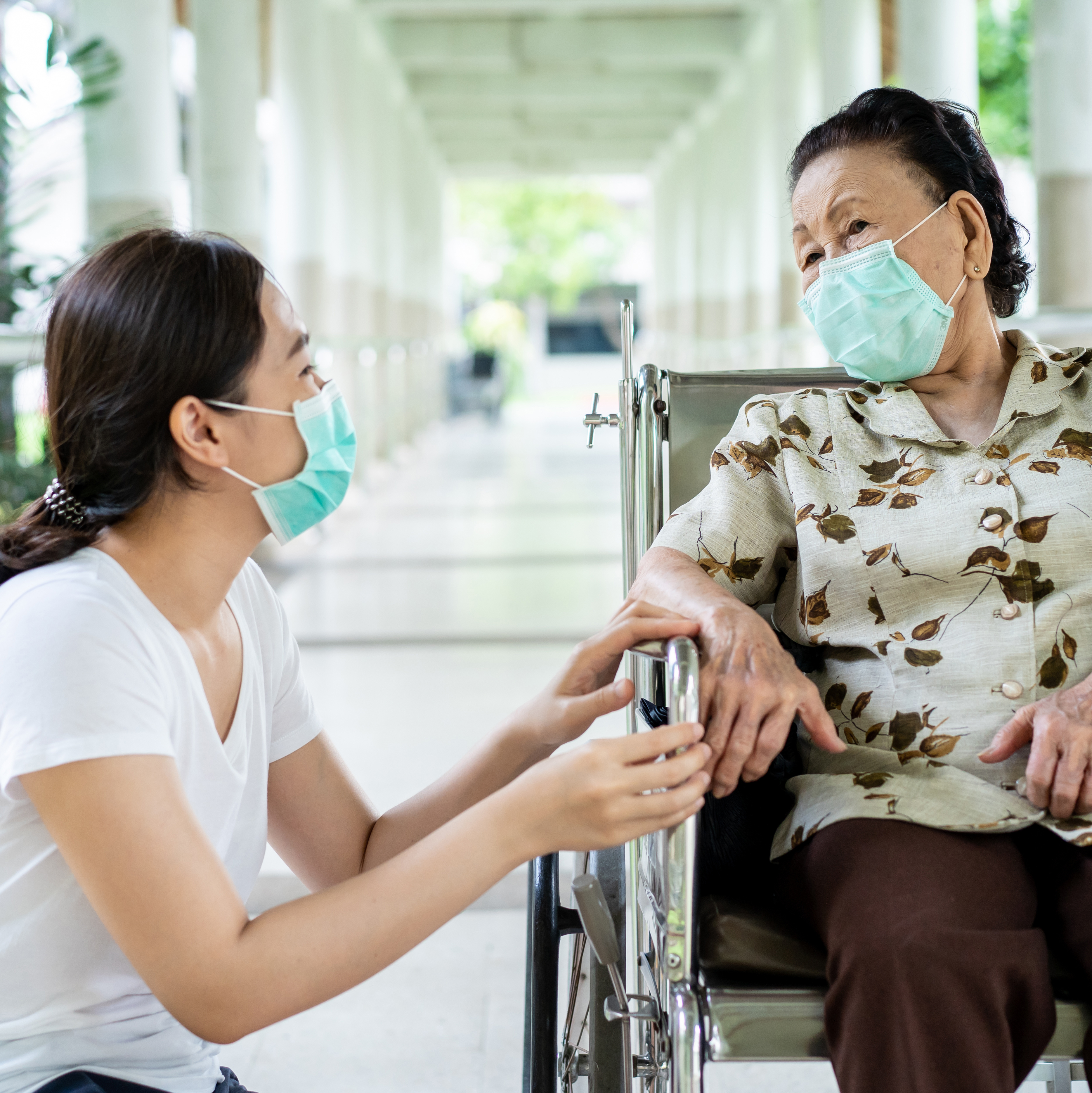
How to Assist Wheelchair Users Through the Delta Outbreak
30 November, 2021
Written by Karma Medical (Edited by Allied Medical)
This blog details how you can protect wheelchair users and those more susceptible and vulnerable to COVID19.
If you are in a public place and see a wheelchair user struggling to go up a slope, you may want to take initiative to help them. However, it is important to think about how your interaction may affect their safety. Consider the following advice before you step in to help. It is important to protect yourself so that you can protect others.
Tip 1
Always Wear a Mask While Talking to a Wheelchair User
When wheelchair users are in their wheelchairs, their height is about one-third shorter than that of someone standing. When wheelchair users talk to someone standing they have to raise their heads almost 45 degrees. During these conversations droplets of spit travel through the air. As we have learnt, COVID19 is transferable through these droplets, which makes it extremely important for the non-wheelchair user to protect the wheelchair user by doing the following:
- Sit down when talking so that you are at eye level
- Wear a mask
- Social distance where you can
Tip 2
Avoid Leaving Bacteria on Wheelchairs

Wheelchair users spend a lot of time in their wheelchairs everyday. Their wheelchair becomes an extension of their body. Although the body has skin to protect and prevent the invasion of bacteria, the wheelchair does not and is directly exposed to bacterial viruses. As soon as someone touches the wheelchair, bacteria is spread and the wheelchair user can then easily transfer the bacteria to his/her face, putting them at risk. Therefore, during the pandemic, it is recommended that non-disabled people should avoid touching the wheelchair when talking with the user, especially the push handles and armrests.
Tip 3
Caregivers Should Take Extra Precautions

We believe that each caregiver has a considerable amount of care experience, but during the pandemic, we need to take extra precautions when cleaning and performing caregiver duties. You should wear gloves during care - protecting yourself is also protecting others. The health of a wheelchair user is dependent on how cautious and vigilant the caregiver is throughout the day.
